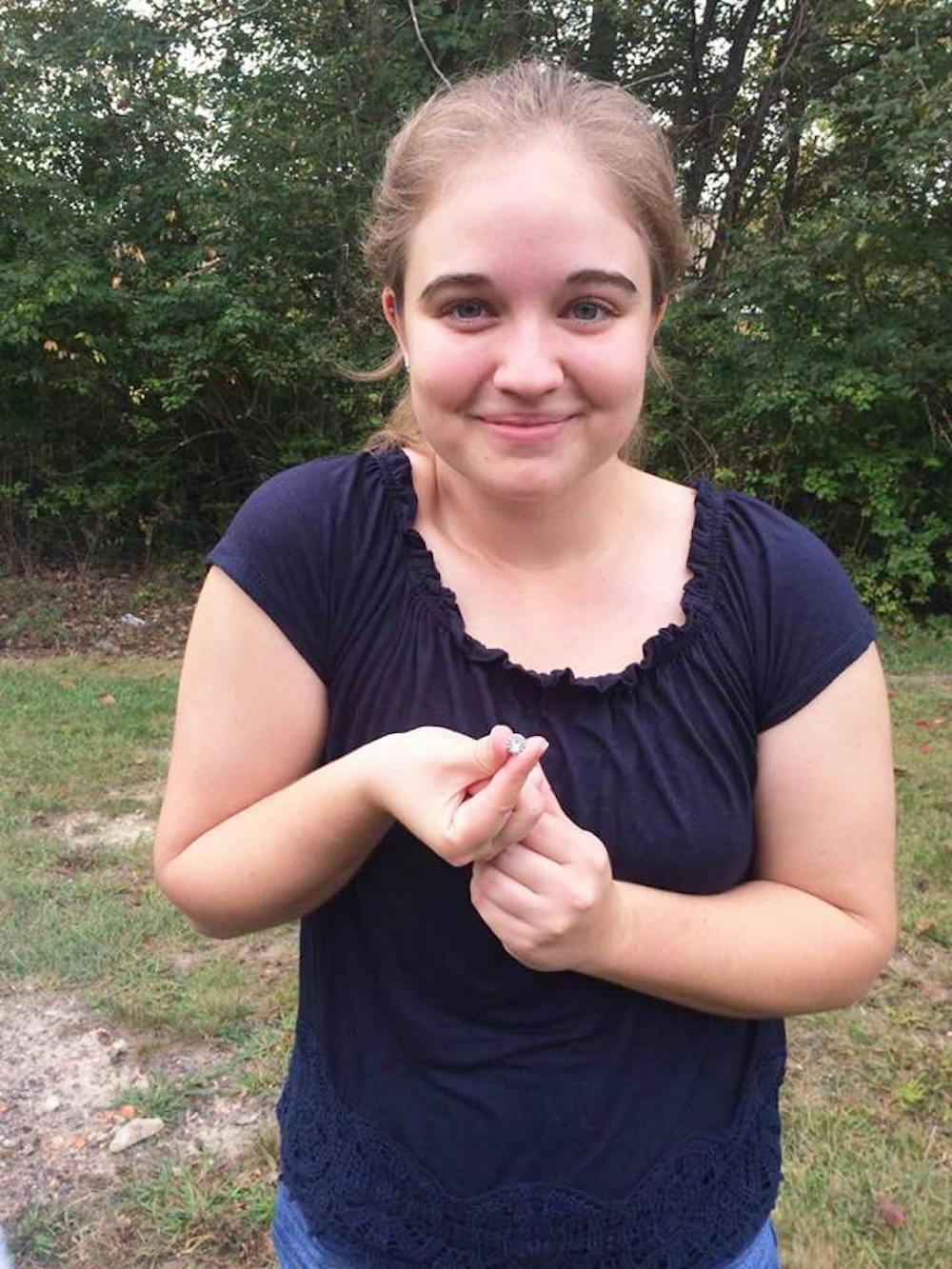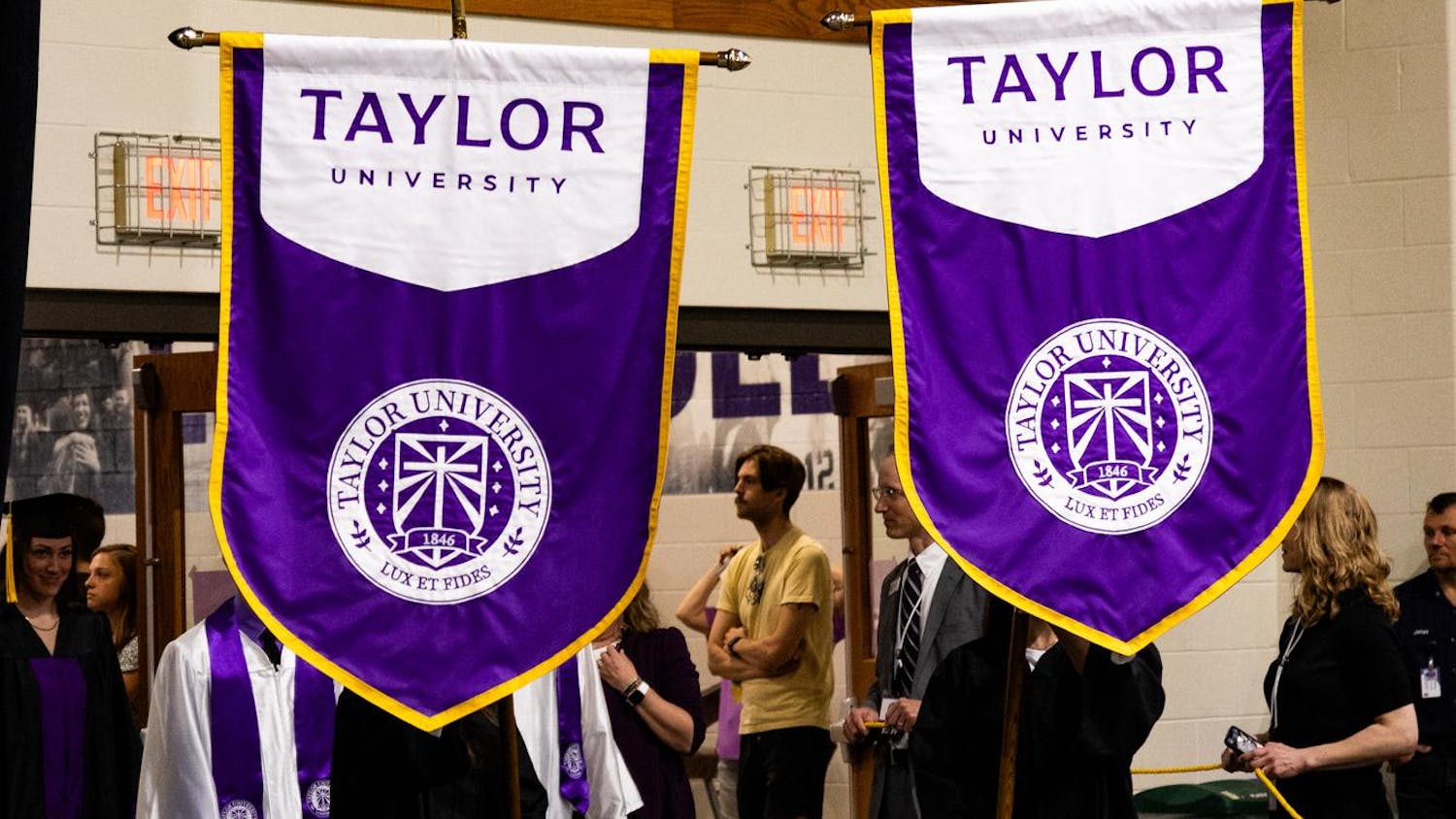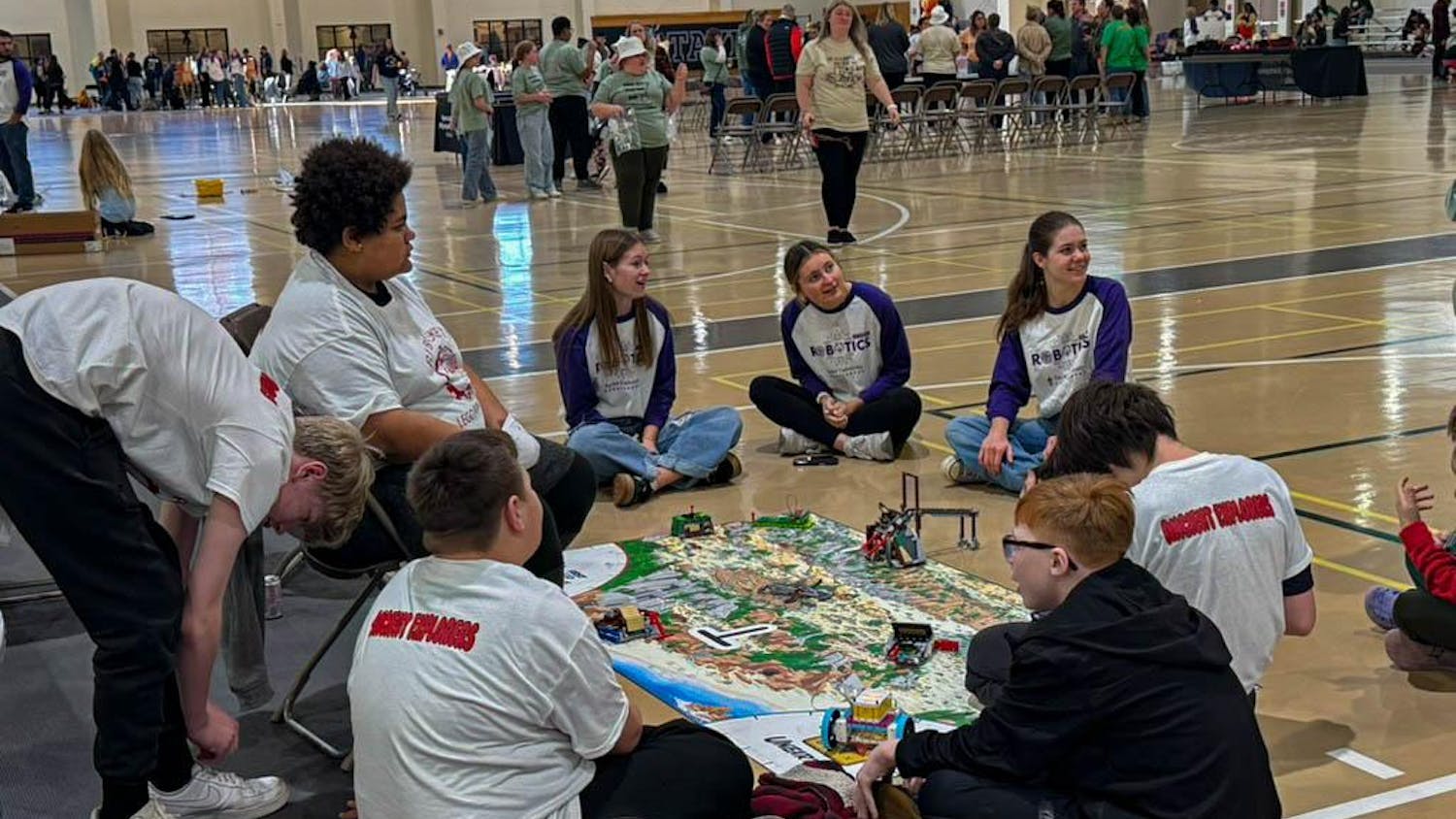By Hope Bolinger | Echo
The phrase "treasure hunt" often brings to mind imagery of gold-thirsty pirates scouring beaches with shovels in hand. But a modern-day treasure hunt requires a few simple items: a phone or G.P.S. for coordinates, a car (if you plan to venture far), a pen and a free schedule for the day.
Geocaching, a sort of modern-day treasure hunt, allows all those who participate to find treasures in their hometowns using the coordinates found on their phones. Other "geocachers" hide "caches," a treasure chest of sorts, for geocachers to find. Once located, the geocacher signs his or her name on a paper found inside the cache and can take the gems inside, which can include anything from a bobby pin to a gold wedding ring. However, according to sophomore geocacher Drew Anderson, if someone takes something from a cache, they must replace it. Other geocachers, such as Chris Ronan, PR manager at Geocaching HQ, admire much more than the treasures the activity produces.
"I started playing in 2011 and have logged more than 20,000 finds," Ronan said. "For me, the greatest benefit is discovering places I never would have seen without geocaching. I've visited every county in my home state of Kansas and my adopted state of Washington because of geocaching. The game has introduced me to some absolutely spectacular locales that never would have crossed my radar otherwise."
Members of the Indiana geocaching community have shared novel experiences from taking up this activity. Ally Wilson, one of the administrators for the Indiana Geocachers, said geocaching helped her in meeting new faces. Social media and local events geared toward geocaching aided in this expansion of her friend group.
Curious about these experiences, I was given to opportunity to go geocaching with Anderson on a warm fall day. Accompanied with sophomores Alyssa Roat and Amanda Fleischmann, we all took turns deciphering the coordinates on Anderson's G.P.S. to locate the geocache. The plan was to find six caches, all within Upland's borders.
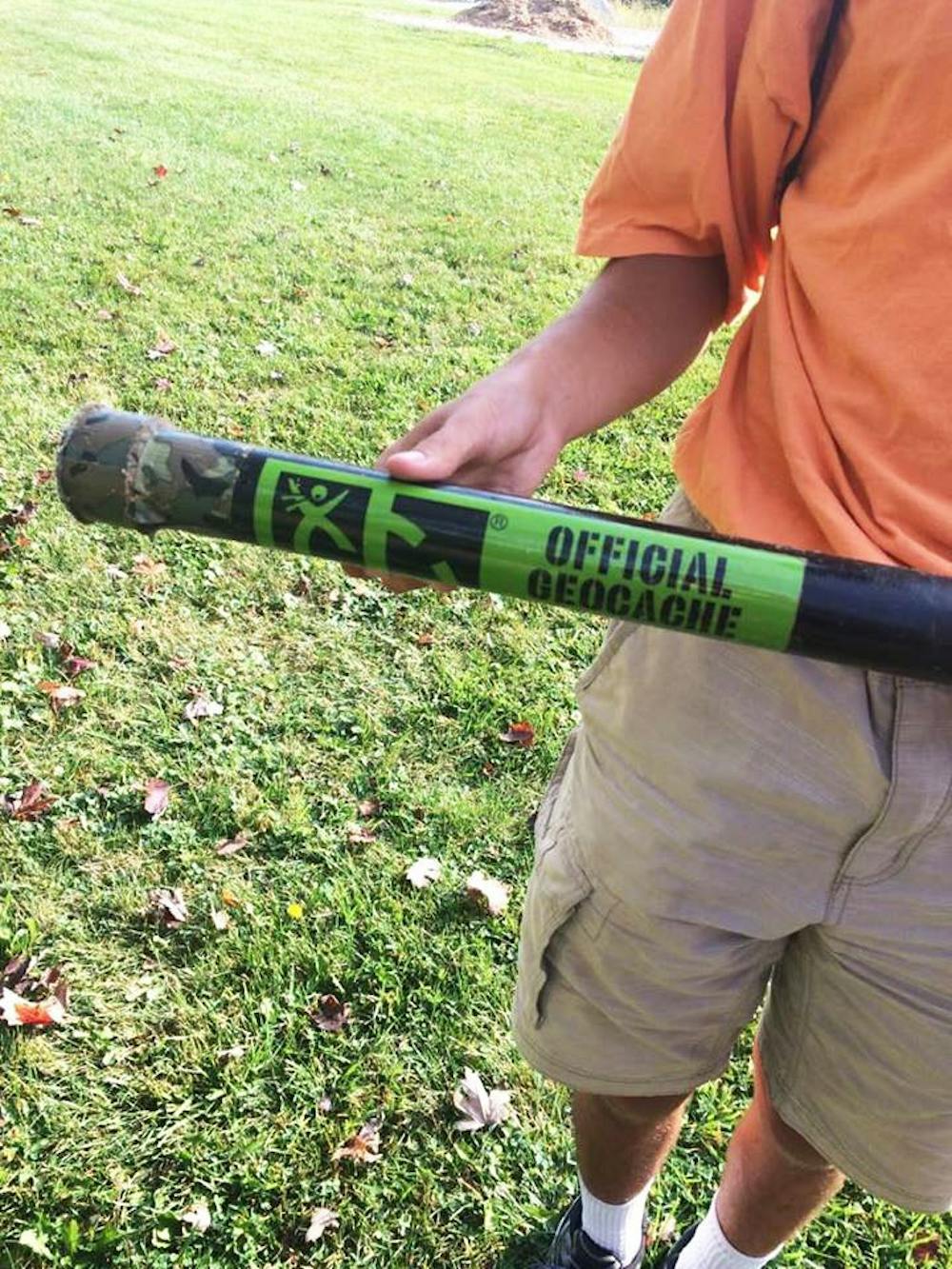
We located the first one within a tree stump.
Before we reached inside to grab the pipe-shaped cache, Anderson told us to check the area for "muggles." This geocacher term refers to anyone who does not participate in the activity. For the second cache find, I failed to heed Anderson's warnings as we searched for a metal cache - a cache that sticks to metal surfaces. As I searched for the cache in a conspicuous manner, two kids approached us and asked what we were doing.
"Are you rock collectors?" one prompted, with her arms ladened with stones she had gathered earlier in the day.
Trying to recover, I muttered something along the lines that I had been collecting rocks for years, and we let the two children "muggles" show us what boulders they found that day.
Satisfied with our admirations, they left and Roat located the metal cache. Inside she found a stone with the word "Hope" emblazoned on it, and insisted I take it as we signed our names on the sheet found in the cache
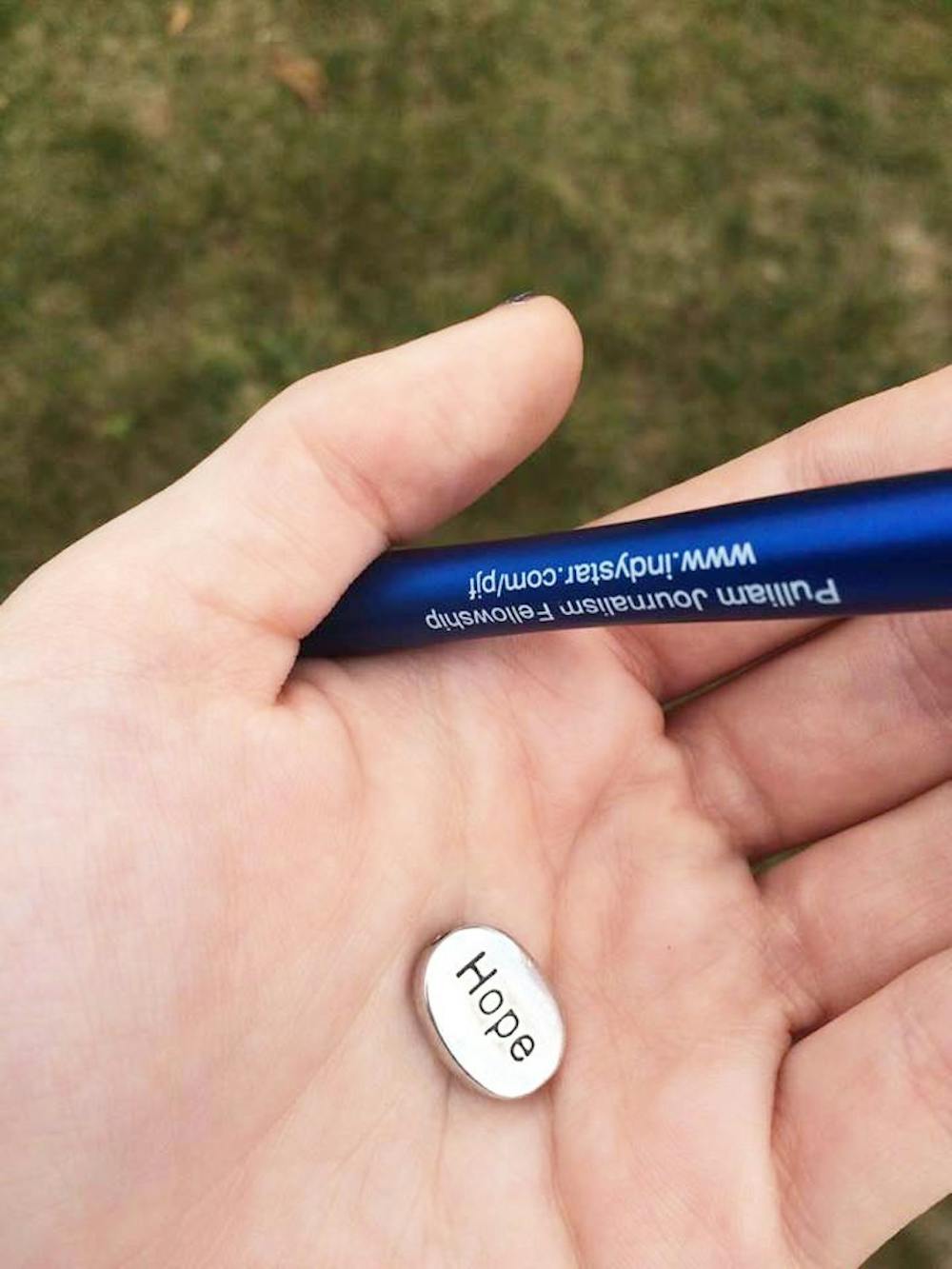
Keeping an eye out for the kids, Anderson placed the cache back where Roat had found it.
"Always leave a cache better than you found it," Anderson said.
Other adventures that day included solving riddles to find certain caches. One required we locate a brick with a specific name to find the placement of the cache. Another took us to a graveyard where we had to decipher dates on gravestones to determine coordinates.
Although Anderson has located nearly 1,000 caches in his life, sometimes finding more than 100 in a day, we called it quits after six finds in less than two hours, no where near the 100 mark. Still, as we drove back home with the tune of "Eye On It" by TobyMac blasting in the car, I could not help but feel like I had found not only treasure but also my newest addiction.
Geocaching Definitions
Geocaching: Finding hidden items via a G.P.S. and coordinates posted by other geocachers.Cache: The container which holds items hidden by a geocacher.
First to Find (FTF): When a geocacher locates a cache before anyone else.
Muggle: Someone who does not participate or know about geocaching.
Traditional Geocache: A cache found via coordinates, requiring no additional puzzle solving.
Mystery Cache: A cache which requires the participant to solve a riddle or puzzle to find the cache's coordinates.
Multi-Cache: Caches which require the participant to travel to more than one location to locate a cache.
Magnetic Geocache: A cache which sticks to metallic surfaces.
Additional Geocaching rules
No burying: No one is allowed to bury a cache.No muggles: Be wary of muggles whenever geocaching; stealthiness is key.
Returning policy: Always put the cache back where you located it.
Be wary of weather: Although rain offers cover from muggles, avoid getting the inside of the cache wet. Remember, always leave a cache better than you find it.
What's in a name? Geocachers often, when signing a logbook inside a geocache, will use codenames. Although you can sign your real name, you can get creative as well.
Hope's tips
Go with a small group: Although it would be fun to do this event with your whole floor, there is a point where there will be too many cooks in the kitchen as you look for the cache.Be prepared for some geocaches to smell: Sometimes geocachers search for caches during storms. Although this provides great cover from muggles, this causes rainwater to get into the cache. Be prepared for some to smell.

